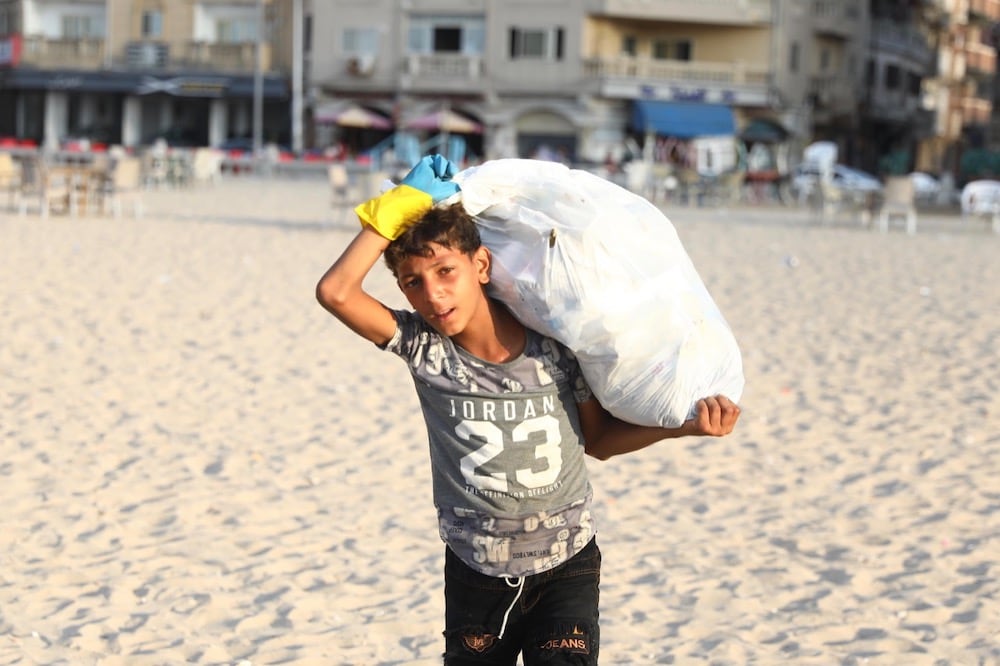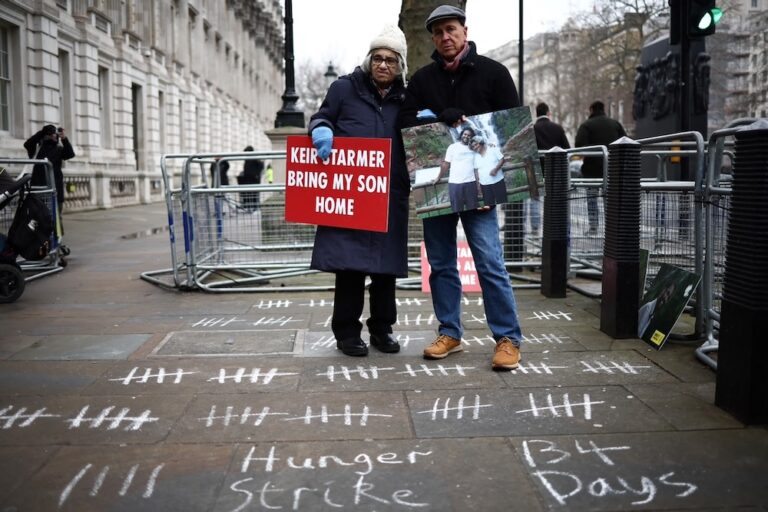COP27 countries should press Cairo to end onerous restrictions curtailing the work of environmentalist organizations.
This statement was originally published on hrw.org on 12 September 2022.
COP27 countries should press Cairo to end restrictions, enable participation
The Egyptian government has severely curtailed environmental groups’ ability to carry out independent policy, advocacy, and field work essential to protecting the country’s natural environment, Human Rights Watch said today. These restrictions violate the rights to freedom of assembly and association and threaten Egypt’s ability to uphold its environmental and climate action commitments, as Egypt hosts the COP27 climate summit in November 2022.
“The Egyptian government has imposed arbitrary funding, research, and registration obstacles that have debilitated local environmental groups, forcing some activists into exile and others to steer clear of important work,” said Richard Pearshouse, environment director at Human Rights Watch. “The government should immediately lift its onerous restrictions on independent nongovernmental organizations, including environmental groups.”
In June, Human Rights Watch interviewed 13 activists, academics, scientists, and journalists working on environmental issues in Egypt. All have been involved in promoting, advocating for, and working on climate action in some capacity. Some currently work for nongovernmental groups. Others who did stopped for safety or security reasons or left the country. They spoke on the condition of anonymity for security reasons. Six other people declined to be interviewed, variously citing security concerns or that government restrictions had forced them to stop their environmental work.
Those interviewed described a sharp reduction in the space for independent environment and climate work since President Abdel Fattah al-Sisi’s government took office in 2014. They described harassment and intimidation tactics, including arrests and difficulties travelling, creating a general atmosphere of fear. These experiences mirror similar tactics pursued by Egyptian authorities against independent local and international groups more generally since 2014 as part of a relentless crackdown on civil society.
At the same time, some people described a recent expansion of official tolerance for environmental activities that are easily reconciled with government priorities and not perceived as critical of the government. An emerging cohort of these environmental groups are working mostly within technical domains such as trash collection, recycling, renewable energy, food security, and climate finance. Increasingly, “the government adopts radical discourse when it comes to the Global North and its contribution to climate change and carbon emissions, just because this intersects with their interests, like the need for more funds,” one person said.
But staff members of critical human rights and environmental groups said they are wary of publicly engaging at COP27 because of fears of reprisals. “The security apparatus will probably now more than ever before focus on environmental civil society in Egypt,” an activist outside the country said. “When COP ends, they might start looking and see who is doing what, who got funds from where, for example.”
Human Rights Watch found that the most sensitive environmental issues are those that point out the government’s failure to protect people’s rights against damage caused by corporate interests, including issues relating to water security, industrial pollution, and environmental harm from real estate, tourism development, and agribusiness.
Activists also said that the environmental impact of Egypt’s vast and opaque military business activity, such as destructive forms of quarrying, water bottling plants, and some cement factories are particularly sensitive, as are “national” infrastructure projects such as a new administrative capital, many of which are associated with the president’s office or the military.
“[These national infrastructure projects are] a red line,” one person said. “I can’t work on this.”
Several people said their organizations, widely regarded as the leading ones in Egypt, have been weakened severely by government restrictions and a pervasive sense of fear and uncertainty. This leaves them unable to fulfill the “watchdog” role on abuses of government power.
“They’re so paralyzed by the possibility of what could happen that they do nothing,” one veteran Cairo activist said.
Restrictions on receiving funding has affected many environmental groups. Several laws since 2014, including a 2014 amendment to the penal code as well as the old and new law on nongovernmental groups, arbitrarily restrict grants and donations from foreign and national sources. Increasingly since 2014, the government has prosecuted dozens of independent human rights and civil society organizations, some of them doing environmental work, for receiving foreign funds, and imposed travel bans and asset freezes on leading activists. Such prosecutions have had a chilling impact on these groups.
Several people said their groups have faced substantial difficulties registering as nongovernmental groups. All activists interviewed said they have increasingly refrained from doing essential field research, both because they fear that they or the people they interview will be arrested and because it has become almost impossible to attain research permits, which typically involve one or multiple security agencies’ approval.
In February 2020, seven United Nations experts who reviewed these repressive laws and others said that they “view the totality of these legislative enactments, and their inter-related and cumulative effects, as having collective and corrosive effects on the promotion and protection of human rights.”
The government repression has forced dozens of Egypt’s leading civil society activists and groups, including those working on environmental and human rights issues, to leave the country, or downscale or quit their activism. A number of foreign human rights and environmental organizations have closed their Egypt offices since 2014. “We haven’t even thought of protesting [these days],” said one environmental activist. Another said that: “Before 2011 the space was not so closed [as it is today]. Now it is very dangerous.”
Human Rights Watch sent questions about the situation of environmental groups to Egyptian authorities on August 23 but has received no response. Egyptian authorities should urgently halt the campaign of repression against independent civil society groups, including bringing an end to years-long prosecutions, asset freezes, and travel bans against human rights and environmental groups and their staff members. The government should drastically amend the 2019 law on nongovernmental groups in accordance with its constitution and international obligations to protect freedom of association. The government should also unblock all news and human rights websites.
The United Nations Framework Convention on Climate Change Secretariat and other governments involved in COP27 negotiations should work with the Egyptian government to provide space for diverse civil society participation at the climate talks. This includes ensuring that premises are inclusive and accessible to all, and that observers, including groups critical of the government, have access to registration, negotiations, and are able to protest and express their positions freely. The Secretariat should also develop human rights criteria that countries hosting future COPs must commit to meeting as part of the host agreement.
It is fundamental for the Egyptian authorities to deliver visas on time for the COP27 participants and end all their unlawful surveillance and intimidation tactics.
“The world needs more climate activism, not less, and there can be no such effective activism when the government treats civic groups as a threat, not an asset,” Pearshouse said. “The UN Framework Convention member states and the Secretariat should press the Egyptian government to make sure environmental groups feel it is safe to engage in and beyond the COP”.
For additional details about restrictions, please refer to HRW’s statement.



